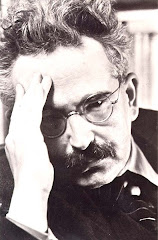If our problem is that we can only see things as they appear to us and never as they really are in themselves, God has the opposite problem. God can see things only as they are, but never as they seem. Thus, when God sees the world as it really is— good, beautiful, ordered, just— he cannot see it the way we do, as often evil, ugly, chaotic, and unjust. This schism, between the way we inhabit our reality and the way God inhabits it, bears the reason for why God is often absent, or, I should say, “seemingly absent” from the world. For God, who sees the whole world and all of history in the blink of an eye, a hurricane here or an earthquake there, a holocaust then or a genocide now, blur together and become as small as a brushstroke on an enormous canvas.
But just as we are aware of the division between things as they seem and things as they are in themselves, so is God. And just as we lament our inability to have certainty about anything, God bemoans the fact that he can only see reality, but never reality as it seems to us, his creation. For us, we struggle to break out of a world of time and space, of determinism, fatalism, and even nihilism. For God, the struggle is to break out of a world governed by total freedom and optimism. God wishes he could possess a tinge of nihilism, enough that would allow him to doubt his world, his goodness, and bring him to act. For God would long to be a humanist if only he could bring himself to disown himself, even if only in part. But such would require that he see himself only as he seems and not as he really is.
For us, we are able to glimpse the world of things in themselves through moral living and through an encounter with the sublime, which we often find in observing nature or a work of artistic genius. For such experiences reveal a hint of purposiveness in the universe. For God, a peek into the world of things as they appear comes in moments of arbitrariness and angst, when purpose seems to slip away. Such moments are rare for God, but they come, whenever someone does something really absurd to try to get God’s attention. Back in the day, when people offered sacrifices, erected temples, built towers and totems in dedication to the gods, God was amazed by all of this, and was heavily involved in the world, since such rituals on the part of human beings made God see the seeming ridiculousness of his universe. Over time, however, human beings have sought less and less to gain God’s attention through ritual and have resorted instead to seeking out reason and enlightenment. Now that people are less “superstitious,” no longer making pilgrimages in search of the Holy Grail or kissing the bones of saints, God is less on edge about the chanceness of his creative enterprise. But every now and then, when, for example, Jews circumcise their boys or shake the lulav and etrog in their huts, when Catholics take the Eucharist, pronouncing a wafer the body of Christ and a cup of wine, his blood, when Charismatics speak in tongues, when Muslims refrain from eating pig and Hindus from cow, God somehow becomes more attuned to the world of things as they appear, and out of the totality of being jump these isolated and unaccounted for images that threaten the entire order of the universe.
Before the industrial revolution, when one could see the stars clearly every night and sunrises every morning, it was no doubt easier to raise one’s eyes to a beyond, to a possibility of a world of things as they are. Now, with nature no longer what it was and modern and post-modern art in rebellion against such notions as order, beauty, and goodness, our view of the noumenal is much more scant. It seems so difficult to see things beyond the way they seem, that we have even given up on the notion of “things in themselves” altogether. We live in a world that has ceased caring about things in themselves and has begun to call things as they appear “things themselves,” at least since Husserl, as if to say that our reality is entirely how we construe it, with no primordial source behind it.
Perhaps, too, in heaven, the angels have urbanized, and it has become harder for God to see the sacrifices down below, the suicide bombings in the name of Allah and the 70 virgins, the banning of Harry Potter or the peyote circles in remote wastelands.
With a large part of humanity that has given up on a world besides the physical and a God who is a blind to a world beyond the spiritual, it becomes clear why there is a “seeming” disconnect between God and the world.
God knows whether and how such a divide will ever be bridged.
Sunday, July 6, 2008
Subscribe to:
Post Comments (Atom)






No comments:
Post a Comment